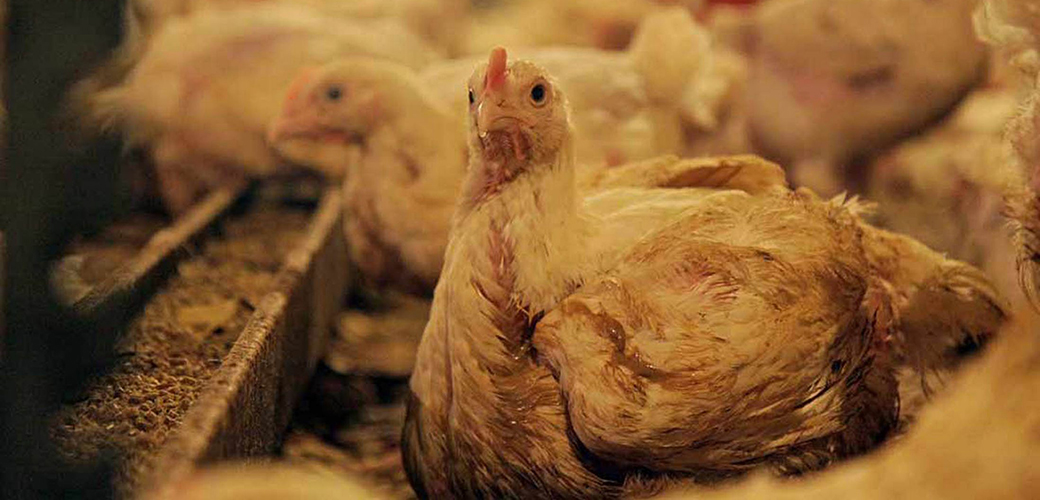

- Most chickens raised for meat in the U.S. are bred to grow large very quickly–fast growth rates are linked to muscle damage, reduced mobility, pain and suffering.
- After a comprehensive study, Global Animal Partnership (G.A.P.) announced that it will require all of its certified farms and brands to use chicken breeds proven to have better welfare.
- With G.A.P.’s new breed requirement and the Better Chicken Commitment, a more humane future for chickens is possible.
The vast majority of the 9 billion chickens raised for meat in the U.S. each year—called “broiler chickens”—are bred to grow rapidly to meet demand for cheap, plentiful meat. This unnatural growth pushes birds’ biological limits and is linked to a variety of health and welfare concerns.
In May 2016, Global Animal Partnership, an independent farm animal welfare certification, boldly embarked on the Better Chicken Project to impartially assess animal welfare of various chicken breeds. G.A.P. funded a comprehensive study with the University of Guelph that tested 16 modern chicken breeds on important health and welfare indicators of organ development, muscle disease, foot and leg health, walking ability and mortality.
More than three-quarters of the conventional chickens in the University of Guelph study had open sores on their feet. The fastest-growing birds also showed much greater muscle damage and weaker organs. Study results confirmed what advocates and animal welfare groups like the ASPCA had been calling attention to for years. Armed with the University of Guelph study results, G.A.P. had the proof it needed that certain broiler breeds are prone to pain and suffering.
Last week, G.A.P. announced its new testing framework, called the Broiler Chicken Assessment Protocol, for evaluating the welfare of different chicken breeds for its certification program and created its first list of approved broiler breeds. G.A.P. will require all of its certified farms and brands to use one of the chicken breeds proven to have better welfare than the breed that dominates most of the U.S. chicken industry.
“For too long, billions of chickens have endured horrors due to their genetics. Despite investigations revealing this wide-spread suffering, even the savviest, most welfare-conscious consumers and welfare-focused food companies have struggled to identify and source alternatives as these fast-growing breeds dominate the market,” said Nancy Roulston, Senior Director of Corporate Policy and Animal Science for the ASPCA. “By creating this comprehensive, scientific approach to assessing chicken breeds, Global Animal Partnership has set a new bar in chicken welfare and is laying out a much-needed roadmap for a more humane future for the chicken industry. The ASPCA will continue to support businesses in adopting these breeds as part of our commitment to improving chickens’ lives.”
Ten animal welfare organizations in North America, including the ASPCA, have been asking food companies to adopt the Better Chicken Commitment to improve these animals’ lives by giving them more space, adding enrichments to their housing environment, improving lighting conditions and- using healthier chicken breeds. So far, over 200 food companies have agreed to Better Chicken Commitment standards, including many familiar brands like Panera Bread, ButcherBox, Giant Eagle and Sweetgreen.
You too can play a role in creating a more humane world for farm animals! Visit Shop With Your Heart to find great resources such as the ShopKind Helpline, our welfare-certified and plant-based Grocery List and materials to encourage your favorite store or restaurant to get on board.
Source: Read Full Article



